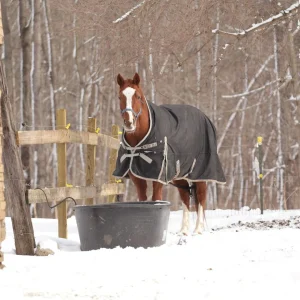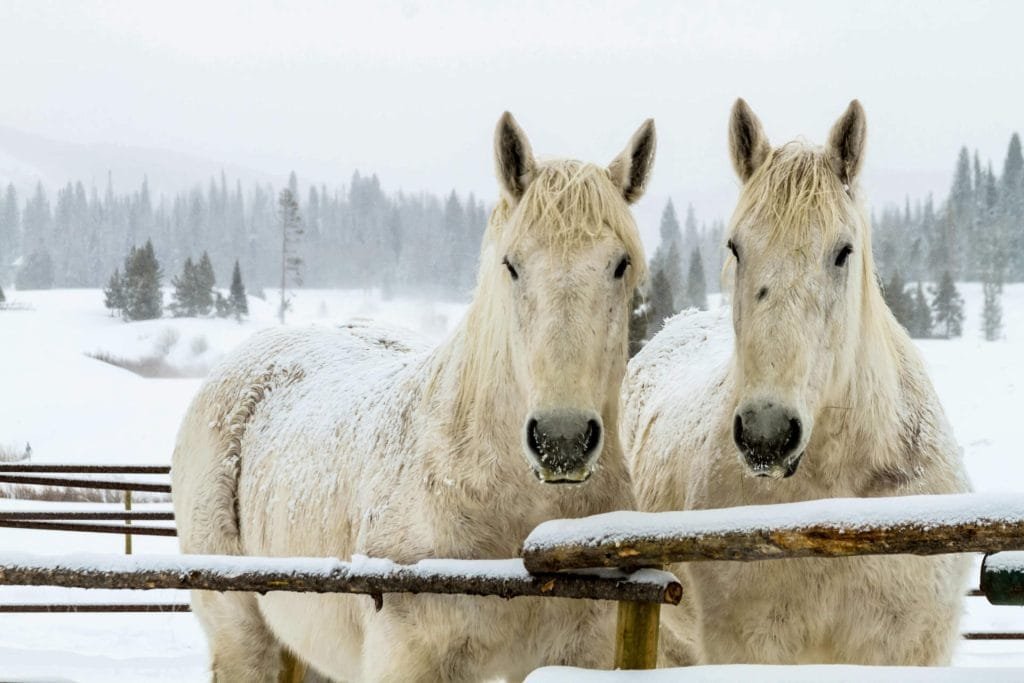Winter Nutrition: Adjusting Diets for Cold Weather
As winter sets in and temperatures drop, it’s crucial for horse owners to reassess their horses’ diets. Cold weather can increase energy demands and change nutritional needs, making proper nutrition vital for maintaining health and well-being. Here’s how to adjust your horse’s diet for the winter months.
1. Increased Caloric Needs
Horses expend more energy to maintain body heat in cold weather. Depending on the temperature and conditions, you may need to increase their caloric intake. Consider these adjustments:
- Increase hay intake: Hay is a great source of energy and can help provide the necessary calories. Aim for high-quality hay that is free from mold or dust.
- Add grains or supplements: Depending on your horse’s workload, you might consider adding grains or high-energy supplements to their diet. Consult your veterinarian or equine nutritionist for specific recommendations.
2. Ensure Adequate Fiber
Fiber is essential for proper digestion and maintaining gut health. In winter, make sure your horse has access to ample forage, such as:
- Grass hay: Providing plenty of grass hay can help meet fiber requirements and keep your horse warm.
- Soaked hay: If hay is too dusty, soaking it can reduce respiratory irritants and make it easier for your horse to eat.
3. Monitor Water Intake
Horses can become dehydrated in winter, especially if they are consuming dry hay. Ensure your horse has constant access to fresh, unfrozen water. Consider the following:
- Heated water buckets: These can help prevent water from freezing and encourage your horse to drink more.
- Offer warm water: In cold weather, offering warm water can encourage hydration.
4. Supplement with Electrolytes
Cold weather can lead to reduced water intake, which may result in electrolyte imbalances. To help maintain hydration and electrolyte balance, consider:
- Electrolyte supplements: Adding electrolytes to your horse’s diet can help replace lost minerals and support hydration. Consult with your veterinarian for appropriate products and dosages.
5. Adjust Feeding Schedule
Consider adjusting your feeding schedule to align with your horse’s needs:
- Multiple small meals: Feeding smaller, more frequent meals can help maintain energy levels and keep your horse warm.
- Feeding before turnout: Offering hay or feed before turning out can help provide energy for staying warm in the cold.

6. Monitor Body Condition
Keep an eye on your horse’s body condition throughout the winter. Adjustments in diet may be necessary based on:
- Weight changes: If your horse is losing weight, increase their caloric intake. If they are gaining too much weight, reduce feed portions accordingly.
- Muscle condition: Ensure your horse maintains muscle condition during winter, especially if they are less active.
7. Consider the Horse’s Activity Level
Adjust your horse’s diet based on their workload and activity level during winter:
- Working horses: If your horse is in regular work, they may require additional calories and nutrients to support their energy needs.
- Retired or low-activity horses: For horses that are not in heavy work, monitor their diet closely to prevent excessive weight gain.
Winter nutrition is essential for maintaining your horse’s health and well-being during cold weather. By increasing caloric intake, ensuring adequate fiber and water, monitoring body condition, and adjusting feeding schedules, you can help your horse thrive throughout the winter months. Always consult with your veterinarian or an equine nutritionist for personalized advice tailored to your horse’s specific needs. With the right care and attention, your horse can stay healthy and comfortable all winter long!




